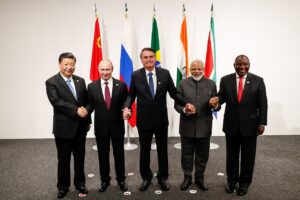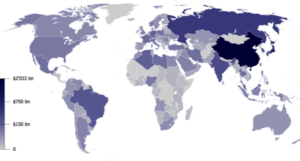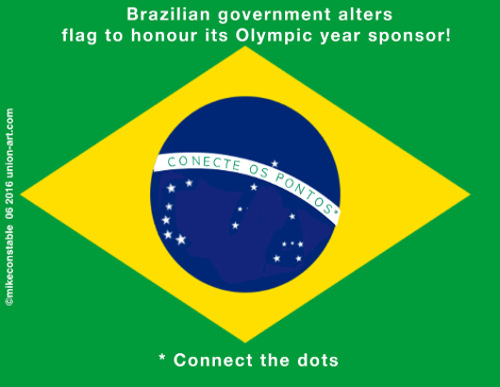
An examination of the significance of BRICS countries as “sub-imperial” powers in the context of global capitalism and imperialism.
Patrick Bond is Professor of Political Economy at the University of the Witwatersrand and directs the University of KwaZulu-Natal Centre for Civil Society. He is the author of Politics of Climate Justice (University of KwaZulu-Natal Press, 2012).

An examination of the significance of BRICS countries as “sub-imperial” powers in the context of global capitalism and imperialism.

Trade and currency wars, financial volatility and economic turbulence are now the most important features of the world economy.
The elements of a new international financial crisis are in place. Although we do not know when it will break out, it . . .

On May 12, Brazil's democratic government, led by the Workers’ Party (PT), was the victim of a coup. What will the other BRICS countries (Russia, India, China, and South Africa) do? Will they stand by as the reactionaries who took power in Brasilia pivot closer to Western powers, glad to warm Dilma Rousseff's seat at the BRICS summit in Goa, India in five months’ time? Or take a stronger line, following the lead of Latin American progressive countries (Venezuela, Cuba, Ecuador, Bolivia, Nicaragua and El Salvador)?
 The billion residents of Africa are amongst the most vulnerable to climate change in coming decades, and of special concern are high-density sites of geopolitical and resource-related conflicts: the copper belt of the Democratic Republic of the Congo and mineral-rich African Great Lakes stretching into northern Uganda, western Ethiopia (bordering the Sudanese war zone), Madagascar and s
The billion residents of Africa are amongst the most vulnerable to climate change in coming decades, and of special concern are high-density sites of geopolitical and resource-related conflicts: the copper belt of the Democratic Republic of the Congo and mineral-rich African Great Lakes stretching into northern Uganda, western Ethiopia (bordering the Sudanese war zone), Madagascar and s